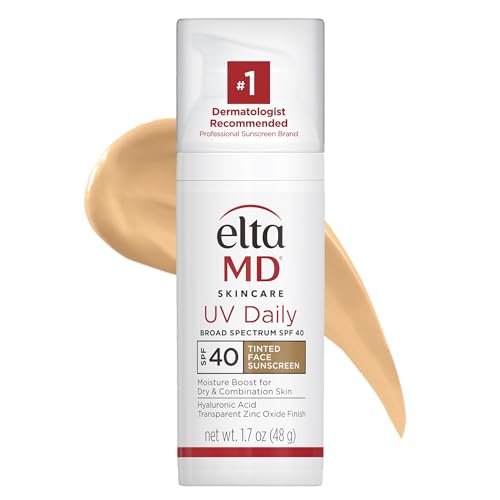To keep your skin healthy, especially if you’re prone to blemishes, it’s crucial to be mindful of what you apply to your skin and hair. Always take the time to check the complete ingredient list for comedogenic ingredients, which are notorious for clogging pores. Don’t be fooled solely by product labels claiming to be “non-comedogenic,” “oil-free,” or “pore-friendly.” These terms are not regulated, and their meanings can differ from one brand to another. It’s essential to do your own research.
Before using any product on your face or hair, make sure to inspect it for comedogenic ingredients. By taking this precaution, you can significantly reduce the likelihood of experiencing a breakout or other skin issues. Remember, being informed and cautious is the key to maintaining clear and healthy skin.
More from Glowing Gorgeous: Find out here the Best Silicone-Free Moisturizers And Why Do You Care
What Does Comedogenic Mean?
Comedogenic refers to the tendency of certain ingredients to clog pores, leading to the formation of comedones (blackheads and whiteheads) and potential acne breakouts. When a product or ingredient is comedogenic, it means it has the potential to block the pores, trapping oil, dead skin cells, and bacteria, which can result in the formation of comedones (clogged pores), such as blackheads and whiteheads. These clogged pores can become inflamed, resulting in acne breakouts and other skin issues. Understanding comedogenicity is essential for maintaining healthy skin and preventing pore-related issues.
Comedogenic Ingredients Checker
A comedogenic ingredients checker is a valuable tool for evaluating skincare products and their potential to clog pores. By entering the product or specific ingredient into an online checker, you can obtain a comedogenic rating for each component. Ratings typically range from 0 to 5, with lower numbers indicating lower comedogenicity. These tools help you determine if a product is suitable for your skin type, particularly if you have acne-prone or sensitive skin. It’s important to remember that individual reactions may vary, so it’s wise to consider your own skin’s sensitivity and tolerance. Comedogenic ingredients checkers offer additional information on specific ingredients and their comedogenicity.
Decoding Comedogenic Ratings and the Comedogenic Scale
If most of the ingredients have low comedogenic ratings (0-2), the product is considered safer for acne-prone or sensitive skin. However, if the majority of the ingredients have high ratings (3-5), it may be wise to avoid or patch test the product before full use.
It’s important to note that the comedogenic rating may vary depending on the study, source of raw materials, or refinement process.
Comedogenic Ingredients
Go to the bottom of this article for the full list of comedogenic ingredients.
Comedogenicity and Pore-Clogging Effects
To grasp the concept of comedogenicity, we need to understand how pore clogging occurs. Skin pores, or follicles, can become clogged when a mixture of skin debris and oil becomes sticky and remains trapped inside the pore instead of shedding naturally. This can be exacerbated by the use of comedogenic products, which further contribute to pore blockage and potentially lead to acne breakouts. By being mindful of the comedogenicity of the products we use, we can help minimize the risk of pore-clogging and maintain clear, healthy skin.
However, it’s important to note that the relationship between pore-clogging ingredients and actual pore blockage is complex, and not all comedogenic ingredients will necessarily clog pores in every individual.
Acne and Skin Concerns
Comedogenic ingredients play a significant role in the development of acne and various skin concerns.
When comedogenic ingredients are applied to the skin, they can block the pores and trap oil, dead skin cells, and bacteria inside. This combination creates an ideal environment for the growth of acne-causing bacteria and the formation of comedones. As a result, we get more blackheads, whiteheads, and inflammatory acne lesions.
To minimize the risk of clogged pores and acne breakouts, avoid or limit the use of highly comedogenic ingredients. These may include substances like coconut oil, lanolin, and certain types of oils. Instead, opt for non-comedogenic skincare products that are less likely to clog pores and contribute to acne formation.
More from Glowing Gorgeous: Find out here Hyram’s Recommended Face Sunscreens For The Summer
Non-Comedogenic Alternatives
Non-Comedogenic Moisturizers
-
- EltaMD UV Daily Moisturizer Broad-Spectrum SPF 40
EltaMD UV Daily Moisturizer is a lightweight, oil-free formula that provides intense hydration while offering broad-spectrum sun protection with SPF 40. It is suitable for all skin types and leaves the skin feeling soft and moisturized without clogging pores. This moisturizer is formulated with hyaluronic acid to retain moisture and niacinamide to calm and soothe the skin.
-
- Revision Skincare Intellishade TruPhysical Moisturizer SPF 45
Revision Skincare Intellishade TruPhysical Moisturizer is a tinted moisturizer that provides broad-spectrum sun protection with SPF 45. It contains 100% mineral filters and blends naturally with most skin tones. This moisturizer also offers anti-aging benefits with peptides and antioxidants to improve the appearance of fine lines and wrinkles.
Non-Comedogenic Bronzers
-
- Physicians Formula Murumuru Butter Bronzer
The Physicians Formula Murumuru Butter Bronzer is a creamy, blendable bronzer that provides a natural sun-kissed glow. It is infused with murumuru butter and nourishing fatty acids to hydrate the skin while giving a luminous finish. The bronzer is non-comedogenic, hypoallergenic, and suitable for all skin types.
-
- Anastasia Beverly Hills Powder Bronzer:
Anastasia Beverly Hills offers a range of highly pigmented and long-lasting bronzers. Their powder bronzer formula is non-comedogenic, allowing you to achieve a sun-kissed glow without clogging your pores. The bronzer blends seamlessly onto the skin, giving a natural-looking finish that can be built up for a more intense contour. It comes in various shades to suit different skin tones, allowing you to find the perfect match for your complexion.
Non-Comedogenic Sunscreens:
-
- La Roche-Posay Anthelios Clear Skin Dry Touch Sunscreen:
La Roche-Posay is a renowned brand for its dermatologist-tested skincare products. Their Anthelios Clear Skin Dry Touch Sunscreen is specifically formulated for acne-prone and sensitive skin. It offers broad-spectrum UVA/UVB protection while also helping to absorb excess oil and mattify the skin. The lightweight and non-greasy formula make it suitable for everyday use, and it won’t clog your pores or cause breakouts.
-
- Neutrogena Clear Face Liquid-Lotion Sunscreen:
Neutrogena is a trusted brand known for its effective skincare solutions. The Neutrogena Clear Face Liquid-Lotion Sunscreen is specially designed for acne-prone skin. It provides SPF 55 protection against UVA and UVB rays while being oil-free and non-comedogenic. The formula is gentle and lightweight, allowing it to absorb quickly into the skin without leaving a greasy residue or clogging pores.
Non-Comedogenic Foundations:
-
- Lancome Teint Idole Ultra Longwear Foundation:
Lancome’s Teint Idole Ultra Longwear Foundation is a non-comedogenic option that offers long-lasting, full coverage without feeling heavy on the skin. It has a matte finish and is oil-free, making it suitable for oily and acne-prone skin. The foundation is available in a wide range of shades to match various skin tones.
-
- Shiseido Synchro Skin Self-Refreshing Foundation:
This non-comedogenic foundation from Shiseido provides a natural, breathable, and buildable coverage. It adapts to your skin’s needs throughout the day, controlling oil and shine while maintaining hydration. The self-refreshing formula helps to resist heat, humidity, and facial movement for a long-lasting, fresh look.
Non-Comedogenic Cleansers:
-
- Caudalie Instant Foaming Cleanser:
Caudalie’s Instant Foaming Cleanser is a non-comedogenic cleanser that effectively removes impurities, makeup, and excess oil without stripping the skin’s natural moisture. It has a lightweight foam texture that leaves the skin feeling clean, refreshed, and balanced. The formula is enriched with grape extract to provide antioxidant protection.
-
- Obagi Medical Nu-Derm Foaming Gel Cleanser:
Obagi Medical’s Foaming Gel Cleanser is another non-comedogenic cleanser that gently removes dirt, oil, and makeup while maintaining the skin’s pH balance. It is suitable for normal to oily skin types and helps to minimize the appearance of pores. The cleanser leaves the skin feeling clean, fresh, and soft.
Dimethicone Comedogenic Rating and Benefits
Dimethicone is a commonly used ingredient in skincare and cosmetic products that is known for its low comedogenic rating. With a comedogenic rating of 1, it is considered to have a low likelihood of clogging pores and causing acne breakouts. This makes dimethicone a popular choice for individuals with acne-prone or sensitive skin.
While it is technically low comedogenic, see The best silicone-free moisturizers and why do you care for more discussion whether you should choose to have dimethicone in your routine.
Exploring Butylene Glycol Comedogenicity
Butylene Glycol is a common ingredient found in skincare and cosmetic products that is considered to have a low comedogenicity. With a comedogenic rating of 1, it has a minimal likelihood of clogging pores and causing acne breakouts. This makes Butylene Glycol suitable for individuals with acne-prone or sensitive skin.
Considering its low comedogenic rating and moisturizing properties, Butylene Glycol is generally well-tolerated and can be a beneficial ingredient in skincare products for various skin types.
Natural Oils and Comedogenicity
Coconut Oil: Myth vs. Reality
Coconut oil has gained popularity in skincare due to its moisturizing properties. However, it is considered highly comedogenic, with a comedogenic rating of 4. For individuals prone to acne or clogged pores, it is advisable to steer clear of coconut oil in skincare products.
Shea Butter: Moisturizing without Clogging Pores
Shea butter is widely used in skincare for its nourishing and moisturizing properties. While it has numerous benefits, it is important to note that shea butter is mildly comedogenic, with a comedogenic rating of 0-2. Depending on your skin type and sensitivity, shea butter may or may not cause pore blockage.
Almond Oil: Nourishing and Non-Comedogenic
Almond oil is often found in skincare formulations due to its emollient and soothing properties. Fortunately, almond oil is non-comedogenic, meaning it is unlikely to clog pores. If you have acne-prone skin, almond oil can be a suitable choice for moisturization.
Jojoba Oil: The Balancing Wonder
Jojoba oil is a versatile oil that closely resembles the natural sebum produced by our skin. It is often praised for its non-comedogenic nature and is suitable for all skin types, including acne-prone skin. Jojoba oil helps balance the skin’s natural oil production, making it an excellent choice for skincare.
Argan Oil: A Non-Comedogenic Elixir
Argan oil is derived from the kernels of the Moroccan argan tree and is known for its nourishing and moisturizing properties. It is also non-comedogenic, making it a safe choice for individuals concerned about pore-clogging. Argan oil can provide hydration without causing acne breakouts.
Seed Oils: Comedogenicity and Skin Benefits
Various seed oils, such as sunflower seed oil and grapeseed oil, are commonly used in skincare products. It’s important to note that the comedogenicity of seed oils can vary depending on the specific oil and its refining process. Some seed oils may have a lower comedogenic rating, making them less likely to clog pores, while others may be more comedogenic. Check the comedogenic rating for specific seed oils before use.
Glycerin and Hyaluronic Acid: Similarities and Differences
Glycerin and hyaluronic acid are popular skincare ingredients known for their hydrating properties. While they share similar benefits, they are not the same. Here’s a breakdown:
Glycerin
Glycerin is a humectant that attracts moisture to the skin, helping to hydrate and maintain its moisture balance. It is non-comedogenic and suitable for most skin types [^13^]. Glycerin is a versatile ingredient often found in moisturizers, serums, and other skincare products.
Hyaluronic Acid
Hyaluronic acid is another potent humectant that can hold up to 1000 times its weight in water, providing intense hydration to the skin. Like glycerin, hyaluronic acid is non-comedogenic [^12^]. It is widely used in serums, moisturizers, and other skincare formulations to boost hydration levels.
While both glycerin and hyaluronic acid offer excellent hydration, they can complement each other when used together in a skincare routine. Glycerin attracts moisture to the skin, while hyaluronic acid helps retain it, resulting in plump and hydrated skin.
Bottom Line
Understanding comedogenic ingredients and their impact on the skin is crucial for maintaining clear and healthy skin. By being aware of the comedogenic rating of specific ingredients and making informed choices, you can minimize the risk of clogged pores and acne breakouts.
FAQs
What does comedogenic mean?
Comedogenic refers to the tendency of a substance to clog pores and potentially lead to acne breakouts and other skin concerns. Comedogenic ingredients can block the pores, trapping oil, dead skin cells, and bacteria, which can result in the formation of comedones (clogged pores) such as blackheads and whiteheads.
How to use pure glycerin on the skin?
Pure glycerin can be used on the skin as a moisturizer or hydrating serum. It attracts moisture to the skin, helps retain it, and strengthens the skin’s natural barrier. Patch test pure glycerin before applying it to your face and adjust the concentration based on your skin’s needs.
Is coconut oil comedogenic?
Yes, coconut oil is considered highly comedogenic with a comedogenic rating of 4. For individuals prone to acne or clogged pores, it is advisable to avoid coconut oil in skincare products.
Is shea butter comedogenic?
Shea butter is mildly comedogenic, with a comedogenic rating of 0-2. Depending on your skin type and sensitivity, shea butter may or may not cause pore blockage.
Is almond oil comedogenic?
No, almond oil is non-comedogenic, meaning it is unlikely to clog pores. It can be a suitable choice for moisturization, even for acne-prone skin.
Is jojoba oil non-comedogenic?
Yes, jojoba oil is non-comedogenic. It closely resembles the natural sebum produced by our skin and is suitable for all skin types, including acne-prone skin.
Is argan oil comedogenic?
No, argan oil is non-comedogenic. It offers nourishing and moisturizing properties without clogging pores, making it a safe choice for skincare.
Is seed oil comedogenic?
The comedogenicity of seed oils can vary depending on the specific oil and its refining process. Some seed oils may have a lower comedogenic rating, making them less likely to clog pores, while others may be more comedogenic. Check the comedogenic rating for specific seed oils before use.
List of comedogenic (pore-clogging) ingredients:
- Acetylated Lanolin
- Acetylated Lanolin Alcohol
- Algae
- Algae Extract
- Algin
- Algea
- Ascophyllum Nodosum
- Baobab
- Beeswax
- Bismuth
- Butyl Stearate
- Butyrospermum
- Carrageenan
- Carrageenan Moss
- Cetearyl Alcohol + Ceteareth 20
- Cetyl Acetate
- Chlorella
- Chondrus Crispus (aka Irish Moss or Carageenan Moss)
- Coal Tar
- Cocoa Butter
- Coconut Alkanes
- Coconut Butter
- Coconut Extract
- Coconut Nucifera extract
- Coconut Oil
- Cocos nucifera oil
- Colloidal Sulfur
- Cotton Awws Oil
- Cotton Seed Oil
- Corn
- Corn oil
- D & C Red # 17
- D & C Red # 21
- D & C Red # 3
- D & C Red # 30
- D & C Red # 36
- Decyl Oleate
- Dioctyl Succinate
- Disodium Monooleamido
- Ecklonia radiata
- Ethoxylated Lanolin
- Ethylhexyl Palmitate
- Glyceryl Stearate SE
- Glyceryl-3 Diisostearate
- Hexadecyl Alcohol
- Hydrogenated Vegetable Oil
- Irish Moss
- Isocetyl Alcohol
- Isocetyl Stearate
- Isodecyl Oleate
- Isopropyl Isostearate
- Isopropyl Linolate
- Isopropyl Myristate
- Isopropyl Palmitate
- Isostearyl Isostearate
- Isostearyl Neopentanoate
- Jojoba wax
- Kelp
- Laminaria
- Laminaria Digitata Extract
- Laminaria Saccharina Extract (Laminaria Saccharine)
- Laureth-23
- Laureth-4
- Lauric Acid
- Laminaria Digitata
- Laminaria Saccharina
- Linolate
- Mango Butter
- Marula
- Marula oil
- Mink Oil
- Moss
- Myristate
- Myristic Acid
- Myristyl
- Myristyl Lactate
- Myristyl Myristate
- Myristyl Propionate
- Octyl Palmitate
- Octyl Stearate
- Oleth-3
- Oleyl Alcohol
- Parkii
- PEG 2 Sulfosuccinate
- PEG 16 Lanolin
- PEG 200 Dilaurate
- PEG 8 Stearate
- PG Monostearate
- PPG-2 Myristyl
- PPG 2 Myristyl Propionate
- Plankton
- Polyglyceryl-3 Diisostearate
- Potassium Chloride
- Propylene Glycol Monostearate
- Red Algae
- Seaweed
- Sesame
- Shark Liver Oil
- Shea
- Shea Butter
- Sodium Laureth Sulfate
- Sodium Lauryl Sulfate
- Soja
- Solulan 16
- Sorbitan Oleate
- Soy
- Soybean Oil
- Spirulina
- Squalene
- Steareth 10
- Stearic Acid Tea
- Stearyl Heptanoate
- Sulfated Castor Oil
- Sulfated Jojoba Oil
- Sulfosuccinate
- Talc
- Undaria Pinnatifida
- Wakame
- Wheat
- Wheat Germ Glyceride
- Wheat Germ Oil
- Xylene


 EltaMD UV Daily Tinted Sunscreen with Zinc Oxide, SPF 40 Face Sunscreen...
EltaMD UV Daily Tinted Sunscreen with Zinc Oxide, SPF 40 Face Sunscreen... Revision Skincare Intellishade Truphysical Tinted Moisturizer SPF 45, 5-in-1...
Revision Skincare Intellishade Truphysical Tinted Moisturizer SPF 45, 5-in-1... Physicians Formula Murumuru Butter Bronzer | Bronzer Face Powder Makeup |...
Physicians Formula Murumuru Butter Bronzer | Bronzer Face Powder Makeup |... Anastasia Beverly Hills - Powder Bronzer - Saddle Golden Amber
Anastasia Beverly Hills - Powder Bronzer - Saddle Golden Amber La Roche-Posay Anthelios Clear Skin Dry Touch Sunscreen SPF 60, Oil Free Face...
La Roche-Posay Anthelios Clear Skin Dry Touch Sunscreen SPF 60, Oil Free Face... Neutrogena Clear Face Liquid Lotion Sunscreen for Acne-Prone Skin, Broad...
Neutrogena Clear Face Liquid Lotion Sunscreen for Acne-Prone Skin, Broad... Lancôme Teint Idole Ultra Wear Buildable Full Coverage Foundation - Longwear &...
Lancôme Teint Idole Ultra Wear Buildable Full Coverage Foundation - Longwear &... Shiseido Synchro Skin Self-Refreshing Custom Finish Powder Foundation, Sand...
Shiseido Synchro Skin Self-Refreshing Custom Finish Powder Foundation, Sand... Caudalie Instant Foaming Cleanser: Daily Facial Cleanser that Cleanses, Soothes,...
Caudalie Instant Foaming Cleanser: Daily Facial Cleanser that Cleanses, Soothes,... Obagi Nu-Derm Foaming Gel – Gel-Based Cleanser for Normal to Oily & Sensitive...
Obagi Nu-Derm Foaming Gel – Gel-Based Cleanser for Normal to Oily & Sensitive...
Comments